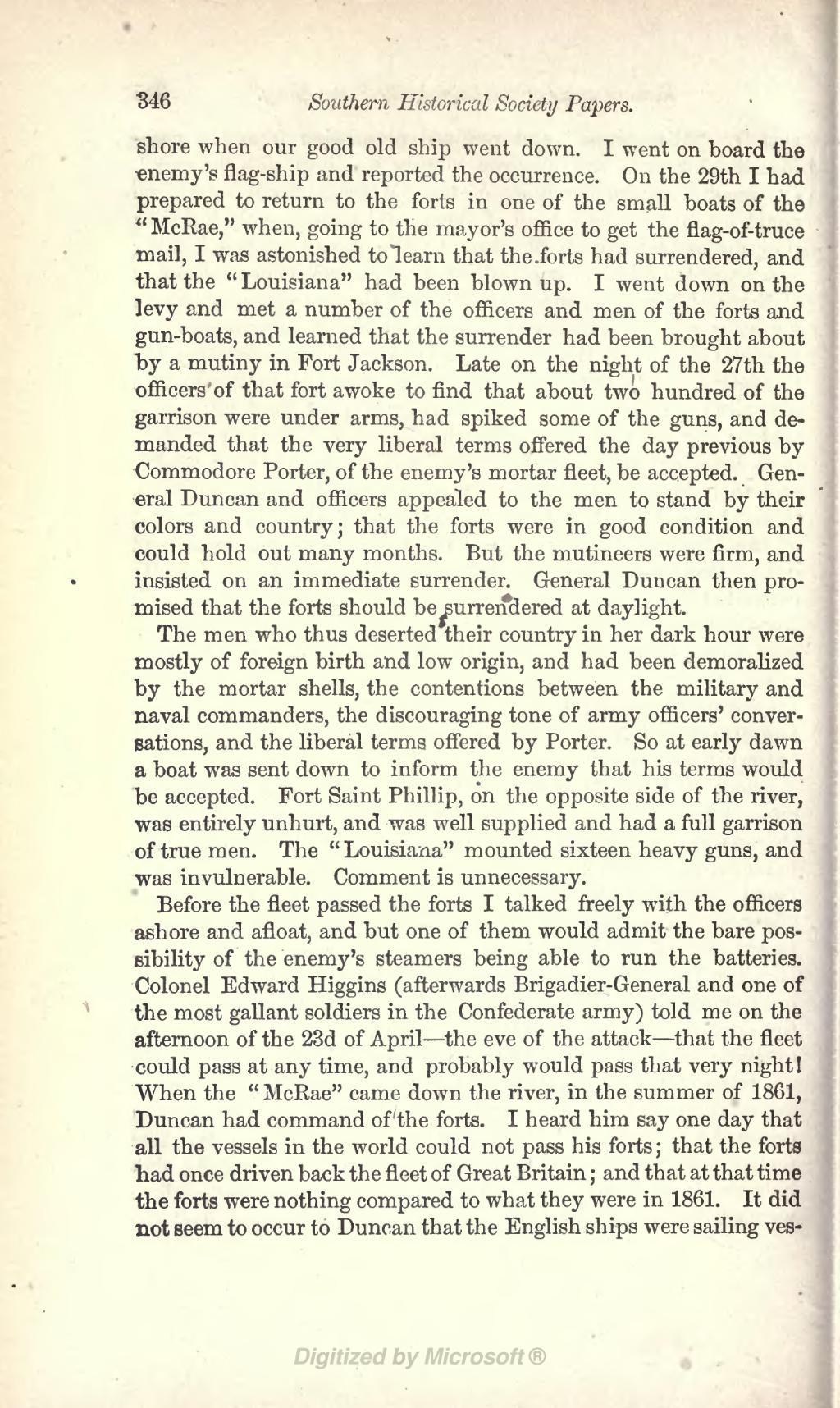shore when our good old ship went down. I went on board the enemy's flag-ship and reported the occurrence. On the 29th I had prepared to return to the forts in one of the small boats of the "McRae," when, going to the mayor's office to get the flag-of-truce mail, I was astonished to learn that the forts had surrendered, and that the "Louisiana" had been blown up. I went down on the levy and met a number of the officers and men of the forts and gun-boats, and learned that the surrender had been brought about by a mutiny in Fort Jackson. Late on the night of the 27th the officers of that fort awoke to find that about two hundred of the garrison were under arms, had spiked some of the guns, and demanded that the very liberal terms offered the day previous by Commodore Porter, of the enemy's mortar fleet, be accepted. General Duncan and officers appealed to the men to stand by their colors and country; that the forts were in good condition and could hold out many months. But the mutineers were firm, and insisted on an immediate surrender. General Duncan then promised that the forts should be surrendered at daylight.
The men who thus deserted their country in her dark hour were mostly of foreign birth and low origin, and had been demoralized by the mortar shells, the contentions between the military and naval commanders, the discouraging tone of army officers' conversations, and the liberal terms offered by Porter. So at early dawn a boat was sent down to inform the enemy that his terms would be accepted. Fort Saint Phillip, on the opposite side of the river, was entirely unhurt, and was well supplied and had a full garrison of true men. The "Louisiana" mounted sixteen heavy guns, and was invulnerable. Comment is unnecessary.
Before the fleet passed the forts I talked freely with the officers ashore and afloat, and but one of them would admit the bare possibility of the enemy's steamers being able to run the batteries. Colonel Edward Higgins (afterwards Brigadier-General and one of the most gallant soldiers in the Confederate army) told me on the afternoon of the 23d of April the eve of the attack that the fleet could pass at any time, and probably would pass that very night! When the "McRae" came down the river, in the summer of 1861, Duncan had command of the forts. I heard him say one day that all the vessels in the world could not pass his forts; that the forts had once driven back the fleet of Great Britain; and that at that time the forts were nothing compared to what they were in 1861. It did not seem to occur to Duncan that the English ships were sailing ves-
